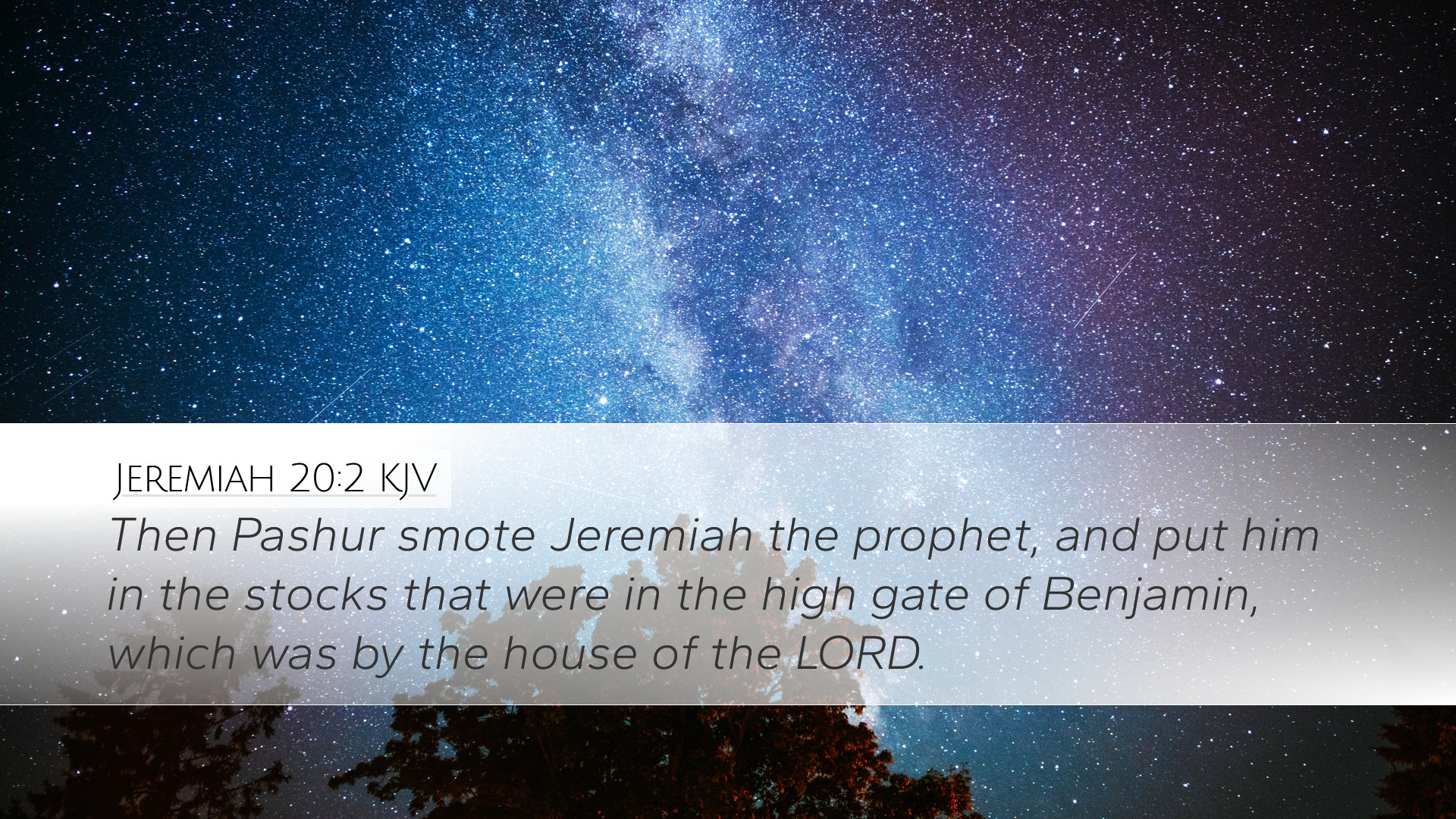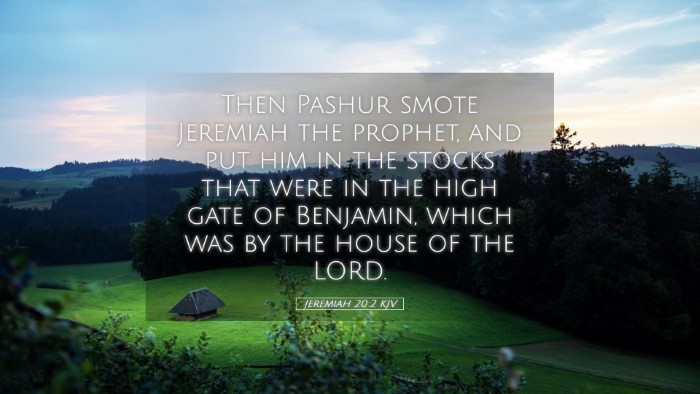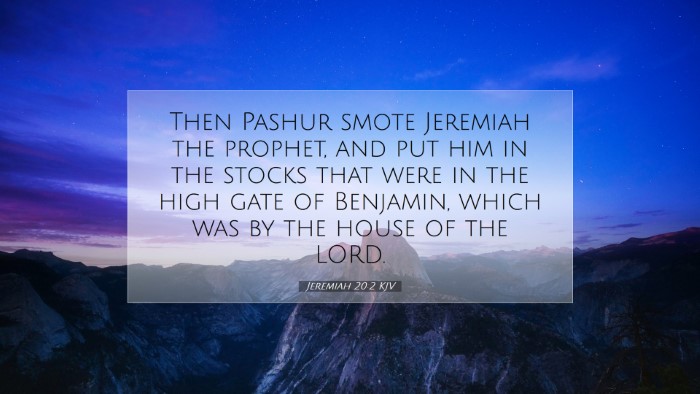Commentary on Jeremiah 20:2
Text of Jeremiah 20:2 (KJV): "Then Pashur smote Jeremiah the prophet, and put him in the stocks that were in the high gate of Benjamin, which was by the house of the LORD."
Introduction
The verse in question presents a vivid image of the persecution faced by the prophet Jeremiah. In this commentary, we will explore the historical, theological, and pastoral implications of this verse, drawing insights from various public domain commentaries. Jeremiah's experience sheds light on the nature of prophetic ministry and the challenges therein.
Contextual Background
In order to properly understand Jeremiah 20:2, it is essential to consider the broader context of Jeremiah's prophetic ministry. Jeremiah was called to prophesy during a tumultuous period in Judah’s history when the people were turning away from God. His messages of impending judgment were met with hostility, particularly from those in positions of power.
Pashur's Role
Pashur, identified as a priest and chief officer in the temple, represents the religious establishment that resisted Jeremiah's words. As Matthew Henry notes, "Pashur was enraged by Jeremiah’s prophecies of doom and took it upon himself to silence the prophet." This highlights the tension between prophetic truth and institutional power.
Theological Themes
This verse introduces several key theological themes, notably the reality of suffering for the sake of righteousness and the conflict between divine truth and human opposition.
1. Suffering for Righteousness’ Sake
Jeremiah’s imprisonment illustrates the cost of faithfulness. Albert Barnes remarks, “Jeremiah suffered not for any crime, but for truth's sake; this is a characteristic of true prophets.” This reflects the principle that following God often leads to suffering, a theme echoed throughout Scripture.
2. Resistance to Divine Will
The act of striking Jeremiah and placing him in stocks symbolizes the broader resistance to God’s messages. Adam Clarke comments, "The high gate of Benjamin was a significant area, and placing Jeremiah there signifies that the truth was being made a public spectacle." The actions of Pashur represent the lengths to which individuals may go to defend their own agendas against divine revelation.
Practical Implications for Ministry
For pastors and those in ministry, Jeremiah 20:2 serves as a reminder of the potential backlash that can occur when preaching uncomfortable truths. It emphasizes the need for resilience and faithfulness in the face of adversity.
1. Courage in Proclamation
Pastors are called to have the courage to proclaim the truth of God’s Word without fear of the consequences. As Henry states, “The true prophet will stand firm and fearless, resolute against the tide of public opinion.” This encourages ministers to remain steadfast in their convictions, regardless of external pressures.
2. Understanding Persecution
Students of theology should recognize that suffering can be part of God’s plan. Clarke reminds us, “Believers should expect persecution, for it is a hallmark of their faith.” This prepares scholars to engage in the academic discourse surrounding the nature of suffering and divine providence.
Reflection and Response
The response to the events in Jeremiah 20:2 is twofold: On one hand, it calls for a deep reflection on the nature of obedience to God; on the other, it prompts an examination of the ways in which the church today may resist prophetic voices. How do we respond to criticism or hostility when advocating for truth and righteousness?
Encouragement in Adversity
This passage encourages believers to find strength in their relationship with God. Jeremiah's suffering was not in vain, and God was with him even in his darkest times. “The Lord knew what Jeremiah endured and strengthened him to persevere," according to Barnes. This assurance is vital for Christians facing their own challenges.
Conclusion
Jeremiah 20:2 serves as a powerful reminder of the trials faced by those who stand for truth. The insights from commentators like Matthew Henry, Albert Barnes, and Adam Clarke provide rich theological and practical applications. Understanding the context and implications of Jeremiah's message encourages modern readers to engage faithfully with their calling, regardless of opposition. In the face of such trials, may all believers find strength and courage to proclaim God's truth.


